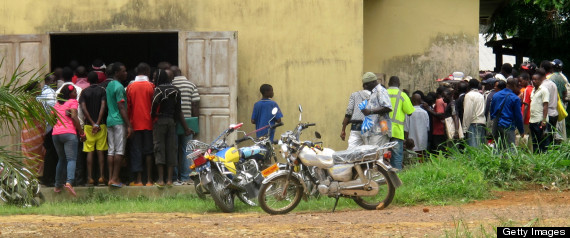By Ryan Aliman
Impunity Watch Reporter, Africa
MAPUTO, Mozambique – The Mozambican government denied allegations that it was badgering the family of police brutality victim Mido Macia.

Last February 26 in Daveyton, east of Johannesburg, South African policemen arrested taxi driver Macia for allegedly parking in the wrong spot. Despite protests by a crowd of bystanders, the law enforcers handcuffed Macia to the back of their car and dragged him along the road as he was struggling for his life.
A few hours after the incident, Macia was reportedly found dead in jail covered with severe bruises, as well as head and upper abdomen injuries.
Since then, Macia’s relatives have pressed charges against the police officers involved. They have also filed a civil case against South Africa’s Police Ministry.
However, Atty. Andrew Boerner, the lawyer representing Macia’s family claim that his clients were being “coerced” by the Mozambican government to drop the case and settle the matter outside of the courts instead. According to Boerner, Macia’s father was asked to meet with both Mozambican and South African officials and to surrender important documents about the case.
But Foreign Minister Oldemiro Baloi denied all these allegations and dismissed them as “absolutely false”.
“It doesn’t make sense”, Baloi told reporters several days ago. “When the nine policemen charged with the murder applied for bail, so that they could await the trial in freedom, our lawyer, together with the South African prosecution services, ensured that this did not happen. After this, no serious government would try to persuade the family to drop the case,” he explained.
Baloi also stressed out that the government is quite aware of its obligation to provide consular assistance to its citizens abroad in accordance to the Vienna Convention. “And this is what the government has been doing in a coherent, consistent and determined manner,” he insisted.
Meanwhile, the South African Police Ministry likewise denied any knowledge of and involvement on the alleged harassment of Macia’s family. “As people who understand, know and the respect law, we are not having an external court process. We have to respect the fact that suspects have been arrested and that the matter is before court,” said Zweli Mnisi, Police Minister Nathi Mthethwa’s spokesperson.
Macia’s case has caused outrage not only in Mozambique, but in South Africa too. As pointed out by Mamphela Ramphele, the leader of the opposition party Agang, it was “an example of the culture of impunity which has taken root in our public service.”
For further information, please see:
All Africa – Mozambique: Government Denies Pressure On Mido Macia’s Family – 21 March 2013
Eyewitness News – Macia’s family being harassed – Lawyer – 19 March 2013
The Daily Mail – Nine South African police officers accused of dragging taxi driver to his death hide their faces in court as they are denied bail – 14 March 2013
International Business Times – Oscar Pistorius and Mido Macia: South Africa is Peaceful Nation, Says President Jacob Zuma – 8 March 2013
Huffington Post – Mido Macia Death: Eight South African Police Officers Suspended In Dragged Man Case – 1 March 2013


